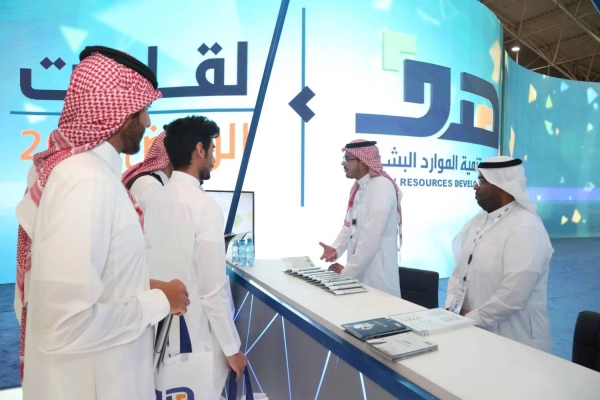The Human Resources Development Fund (HADAF), operating under the Ministry of Human Resources and Social Development (MHRSD), has recently announced that it has successfully facilitated the employment of 169,000 Saudi nationals during the third quarter of 2024. The fund has invested a total of SR1.4 billion in training and empowerment programs to support the employment of Saudi men and women in the private sector. In the first nine months of 2024, the HADAF has helped approximately 294,000 Saudi individuals secure jobs, with a total of 1.7 million individuals benefiting from the fund’s programs and services during the same period.
Moreover, from the start of 2024 until the end of the third quarter, around 139,000 establishments across the Kingdom have benefited from the services and products offered by the HADAF, with a total expenditure of SR5.48 billion on training and development programs. The HADAF plays a crucial role in driving the Kingdom’s progress across all sectors by adapting to evolving business needs and the demand for national workforce skills. The fund focuses on developing national skills, enhancing Saudi workforce participation, fostering collaboration with the private sector for localization, and strengthening partnerships to empower national talents, thus improving their competitiveness and long-term presence in the job market.
The HADAF’s efforts are aimed at reducing unemployment rates among Saudi nationals by providing them with the necessary skills and training to excel in the workforce. By investing in training and development programs, the fund is not only helping individuals secure jobs but also supporting the growth and sustainability of businesses across the Kingdom. The fund’s commitment to empowering national talents and promoting workforce participation is evident through its successful outcomes in facilitating employment and skills development for Saudi men and women.
Through its various programs and services, the HADAF has become a key player in promoting Saudi workforce participation and fostering collaboration between the public and private sectors. The fund’s initiatives have had a positive impact on the economy by empowering national talents, improving their competitiveness, and contributing to the long-term sustainability of businesses. By investing in training and development programs, the HADAF is not only creating opportunities for Saudi nationals but also supporting the growth and diversification of the Kingdom’s economy.
In conclusion, the HADAF’s recent announcement of facilitating the employment of 169,000 Saudi nationals during the third quarter of 2024 highlights the fund’s commitment to supporting the Kingdom’s goals of reducing unemployment rates and promoting workforce participation. Through its investment in training and empowerment programs, the HADAF continues to play a vital role in developing national skills, enhancing Saudi workforce participation, and fostering collaboration with the private sector for localization. With a focus on empowering national talents and improving their competitiveness in the job market, the fund’s efforts are contributing to the Kingdom’s ongoing progress across all sectors.











